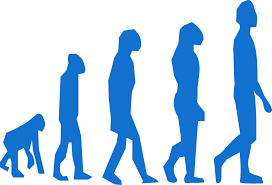We change our priorities, points of view and approaches to new inventions or to old thoughts. However, there are some features of human mind and way of being that never change. We can mention some negative examples as selfishness, hypocrisy, thirst of power and arrogance. I figure it out this way.
 “Imagine how the caveman felt after the discovery of fire. An invaluable divine gift, a link between the mortal flesh and unknown immortality. Gods began to be worshiped, and the man took the favour of divinities for once. What an arrogance. Ironically, as faithful subject, humanity decided that the moment of “showing to gods that it deserves immortality” had come. This was the date of birth of the thirst of power.
“Imagine how the caveman felt after the discovery of fire. An invaluable divine gift, a link between the mortal flesh and unknown immortality. Gods began to be worshiped, and the man took the favour of divinities for once. What an arrogance. Ironically, as faithful subject, humanity decided that the moment of “showing to gods that it deserves immortality” had come. This was the date of birth of the thirst of power.
At the beginning the man established his supremacy on beasts, that till that moment had been the nearest beings to him in nature. We are not speaking of pure hunting for surviving, the only aspect in common with his “prehistoric roommates”, but of the elevation of the individual to “master”, “owner”. Master, of course. Stories in which brave humans fought the Skies were created. With these purposes, a pair of fools decided that the moment of a further elevation had come. It was the terrible birth of an immortal feature of our dear mortal condition: war.
They fought each others in the name of vane ideals, animated by the conviction that they were defended by gentle gods.
With the coming of monotheist religions, the man deleted his immortal rivals, rejecting their existence or, better, focusing all their essence in a single good God.
“God made us on his image and similarity”, this was a miserable lie that gave a spark of hope in life after death.
But no one thought that, actually, gods were taking the traits of man”.
This narration has the purpose to underline the concept of the traits that never change in human nature. Man is scared by everything that surrounds him, but it is gifted with the ability of thinking, that actually is often a cause of terrible consequences, as war is. Strong of this power man falls in irreversible mistakes, pushed by the conviction that everything he does is the correct choice. This led man to his own personal prison, in which the walls are just built by his mind.
Francesca Ferraro, 4 B Scientifico



